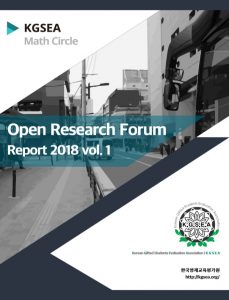The 2021 Open Research Forum will take place on an Online Webinar due to difficulties caused by COVID-19.
Presentations this year will be limited to undergraduate or graduate students.
Open Research Forum
Student-Friendly
There are no fees to pay and there certainly are no expectations for groundbreaking research.
Any passionate student’s research is welcomed as long as it fits our scope.
Non-Competitive
We will invite all students who have submitted to the Open Research Forum to scheduled forums.
In the forums, you can have a great time learning and discussing other researches with your peers, as well as receiving feedback.
Great Experience
Although The Open Research Forum is not an academic journal, the process of writing up a research paper stands the same here.
Going through the whole process of writing a research paper is a great experience, and we guarantee that it would help you in your future academic career.
*If you are taking a first step towards your own research, don’t hesitate. We have our guidelines set-up to be beginner-friendly.*
Schedule
July 24/25, 2021 (9 AM to 1 PM) UTC+9
Presentation order at the Open Research Forum Webinar may be subject to change.
The webinar session will open at 8:50AM KST for pre-registered audience members ONLY.
The Lecturers
Although the Open Research Forum is open to all, presenters must be invited and approved in advance in order to ensure authenticity and preparedness.
Due to the special circumstances this year, lectures will be reserved for a undergraduate or graduate students, all of whom have previously served the Forum as staff or teaching assistants. The full list of lecturers is below and is currently NO LONGER subject to change.
In order to be eligible for consideration, current and future lecturers must also submit a formal application through this form. They must also sign and abide by our Honor Code; failure to do so may and will result in removal from the Forum at any time.
| Speaker's Name | Major | School | Lecture Title |
|---|---|---|---|
| Jae Hee LEE | Mathematics | MIT (Graduate) | Impossible figures and topology |
| Ran WANG | Mathematics & Economics | Yale University | Tiling with Dominoes – the Dimer Model |
| Hyunji KIM | Computer Science & Engineering | MIT | Introduction to Machine Learning |
| Gheehyun NAHM | Mathematics | University of Cambridge | Probability, Expected Value, and Gamblers |
| Junghwan(John) LEE | Mathematics & Computer Science | UC Berkeley | Efficient Arithmetics |
| Soohyuk CHO | Computer Science & Physics | UC Berkeley | Modular Arithmetic & Cryptography |
| Rei Yatsuhashi | Mathematics & Computer Science | Harvard University | Solving Connect-Four: An Adventure in Game Theory |
| Mark LEE | Sociology | Yale University | The Chinese Remainder Theorem |
Lecture Note
| Date | Speaker | Title | Subject | Difficulties |
|---|---|---|---|---|
| July 24th, 2021 | Ran Wang | Tiling with Dominoes – the Dimer Model | Mathematics (Combinatorics) | Undergraduate Students |
| July 24th, 2021 | Rei Yatsuhashi | Solving Connect-Four: An Adventure in Game Theory | Game Theory, Computer Science, Trees | 8~10th Grade |
| July 24th, 2021 | Hyunji Kim | Introduction to Machine Learning | Computer Science | 6~8th Grade |
| July 24th, 2021 | SooHyuk Cho | Modular Arithmetic & Cryptography | Mathematics & Computer Science | 10~12th Grade |
| July 25th, 2021 | Jae Hee LEE | Impossible figures and topology | Mathematics | 10~12th Grade |
| July 25th, 2021 | Junghwan(John) Lee | Efficient Arithmetics | Mathematics | 8~10th Grade |
| July 25th, 2021 | Gheehyun Nahm | Probability, Expected Value, and Gamblers | Mathematics | 8~10th Grade |
| July 25th, 2021 | Mark LEE | The Chinese Remainder Theorem | Mathematics | 8~10th Grade |
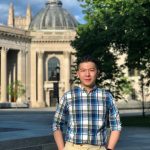
Ran WANG says
How many ways can you tile an 8*8 chessboard with dominoes (2*1 or 1*2 rectangles), covering each unit square without overlapping? You would soon give up enumeration since there are nearly 13 million of them (precisely, 12,988,816)! The dimer model helps to describe this problem and transform it to a solvable linear algebra question. This lecture aims to have a glimpse into the general idea of the dimer model with reference to some simple patterns. Knowledge of determinants is preferred, but I will develop the basics at the beginning of the lecture.
Resources
Here are links to a few related papers, but I do not expect anyone to spend time on it… P. W. Kasteleyn, The statistics of dimers on a lattice: I. The number of dimer arrangements on a quadratic lattice, https://www.sciencedirect.com/science/article/abs/pii/0031891461900635
R. Kenyon, Lectures on Dimers, https://arxiv.org/abs/0910.3129
The following material is more approachable and gives the general idea: R. Kenyon and A. Okounkov, What Is…a Dimer?, https://www.ams.org/notices/200503/what-is.pdf
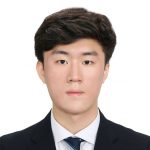
SooHyuk CHO says
Modular arithmetic is one of the core concepts in discrete math. It is widely used in computer science and cryptography.. Modular arithmetic is useful when we require some setting that should limit numbers to a predefined range {0,1,…, N −1}, and wraps around whenever you try to leave this range — like the hand of a clock (where N = 12) or the days of the week (where N = 7). Through this lecture, I’d like to introduce the fundamentals of modular arithmetic and how it has been used in cryptography by explaining the RSA algorithm.
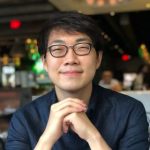
Jae hee LEE says
Penrose triangle (https://en.wikipedia.org/wiki/Penrose_triangle) is a famous optical illusion which illustrates a universal phenomenon in mathematics — global inconsistency of locally consistent data. I will describe this concept through examples, and explain how they connect to the study of geometry of shapes. The talk should be accessible to a general audience.
Resources
https://en.wikipedia.org/wiki/Penrose_triangle
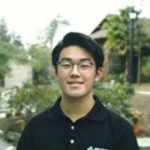
Junghwan (John) LEE says
Arithmetic is without doubt the most readily used mathematical topic and mathematicians have long pondered how one can do such calculations faster. The invent of computers have significantly improved the process of arithmetic processes, but the need for faster computations is still in high demand as we deal with bigger sets of data. In my seminar, I will introduce arithmetic algorithms before and after computers, and contrast them to showcase how efficient algorithms have sped up calculations in today’s world.

Hyunji KIM says
Machine learning seems to be discussed everywhere. But what exactly is machine learning and how do we apply it? I’ll introduce the basics of machine learning, its various techniques, and the ways in which it gets applied today.

Gheehyun NAHM says
If you throw a die until you throw a six, how many times are you expected to throw? If you play the lottery until you double your money or go bankrupt, how many times are you expected to play? I will explain how these kinds of questions are sometimes easier from the point of view of a gambler.
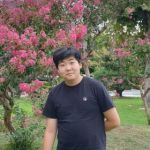
Youngjun LEE says
Modular arithmetic is a relatively unknown branch of mathematics which lies outside the traditional high school curriculum but nevertheless presents itself quite often in competitive mathematics problems. In this lecture, I will focus on its ability to enable students to solve seemingly impossible problems in a relatively time-efficient manner, focusing on key elements of the topic such as modular exponentiation and the Chinese Remainder Theorem before ending with a discussion of the possible real-life applications.
Resources
https://www.khanacademy.org/computing/computer-science/cryptography/modarithmetic/a/modular-exponentiation https://mathworld.wolfram.com/ModularArithmetic.html
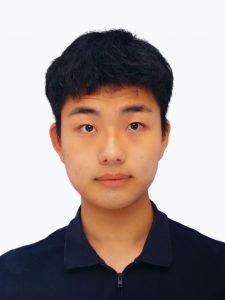
Rei YATSUHASHI says
Complex combinatorial games like Chess and Go have been analyzed for centuries. Numerous scholars and players have pondered: “Is either player guaranteed to win, or will optimal play by both sides ensure a draw?” “Are computers capable of exceeding the best human players?” But more recently, a more interesting question has surfaced: “how can insights produced by computer-play inform human strategy?”
In my talk, we will analyze the (much) simpler game of Connect-Four, and design a computer program together that plays “perfectly.” Through this talk, I hope to provide some basic insight into the fields of computer science and game theory. This talk should be accessible to a general audience.
Resources
I’ll be following this tutorial, but instead of explaining everything in code, I’ll use pseudo-code. I’ll try and show demonstrations too if time permits: http://blog.gamesolver.org/solving-connect-four/
Join as Audience
Please contact your national director below to register as an audience member for the 2021 Open Research Forum Webinar. Once the form has been filled out, an email will be sent to you containing the Webinar link and additional information about the event.
The form will be closed on July 23, 11:59 PM UCT+9. There is also a maximum audience limit of 90 members. Spots are allocated on a first-come-first-serve basis, so please be aware that the form may close before the final deadline.
Korea – Patrick YOO
INFO@KGSEA.ORG
Myanmar – Hnin Set AYE
hninsetaye@gmail.com
Indonesia – Roy LO
note4roy@gmail.com
Join as Lecturer
- Please contact us.
- Get a copy of your research ready. The research must be related to the fields of mathematics or science.
- The manuscript must be written in English.
- Read the Honor Code and make sure you follow it.
- Then, format your paper with the given template. The template can be found on the website.
- Submit your paper before the deadline using the submission form, and wait for our reply!
Resource
Please feel free to refer to past presentations and publications created by members of the KGSEA Math Circle. These Open School files are completely available to all and may be used for non-commercial purposes; we hope that they will be helpful to you in your own academic explorations.
Documents
- September 2019 – Introduction to Functions: Dong Kyun LIM (PDF)
- September 2019 – KNN & K-Means Algorithm: Yunsu HAN (PDF)
- October 2019 – Predicate Logic: Minjae KIM (PDF)
- November 2019 – Summations in Probability: Yongjun (Mark) LEE (PDF)
- December 2019 – Mendelian Genetics: Joshua Nam (PDF)
- January 2020 – Vieta’s Formulas: Daniel Yejoon KANG (PDF)
- February 2020 – Introduction to Manim: Joon KIM (PDF)
- March 2020 – BFS & DFS – Path Finding Algorithms: Raymond KIM (PDF)
- April 2020 – Logistics Regression in Proteins: Charles (Alan) SHIN (PDF)
- May 2020 – Calculating Molarity: Han Na SHIN (PDF)
- June 2020 – Cinematography: Justin CHOI (PDF)
- July 2020 – Introduction to Mathematical Models: Seonghyun (Sean) Yoon (PDF)
- August 2020 – Seungjae YANG
- Introduction to Functions: Dong Kyun LIM
- KNN & K-Means Algorithm: Yunsu HAN
- Predicate Logic: Minjae KIM
- Summations in Probability: Yongjun LEE (VIDEO)
- Mendelian Genetics: Joshua NAM
- Vieta’s Formulas: Daniel KANG
- Manim in Computer Graphing: Joon KIM
- BFS & DFS – Path Finding Algorithms: Raymond KIM (VIDEO)
- Math in Pharmacokinetics: Charles SHIN
- Calculating Molarity: Han Na SHIN (VIDEO)
- The Basic of Cinematography: Justin CHOI (VIDEO)
- Introduction to Mathematical Model: SeongHyun (sean) YOON
FAQ
Is the Open Research Forum an online event?
The Forum is traditionally held offline; due to the special circumstances at hand, we will be moving temporarily to an online Webinar for the 2021 event.
How should we prepare for the Webinar?
All attendees and lecturers must have Zoom installed and connected to working video and audio in order to enable effective interaction and dialogue.
How can we participate?
The 2021 Open Research Forum Webinar will be conducted using Zoom. Participants will receive an email with a click-to-join webinar link following successful registration.
How do we apply as presenters for future Open Research Forum events?
Please feel free to explore any ideas you may have! Prospective lecture topics and/or presentations can be sent to [insert email address]; provided the deadline has not elapsed, we will be able to reach out to you individually.
Where are Open Research Forum events held?
The Open Research Forum is currently based in South Korea; we are 100% open to holding events in other countries. Please feel free to contact [info@kgsea.org] if you are interested in doing so!
What is the Honor Code?
The Open Research Forum Honor Code contains basic stipulations regarding plagiarism and other violations of fundamental academic integrity.
Is there a format for Forum submissions?
All prospective lecturers must submit their content as Microsoft Word documents for ease of synthesis and publication. Please download and use our official template.
Are there participation fees for the Open Research Forum?
The Open Research Forum is free for all participants and lecturers; however, for events which require an official venue, a small participation fee may be added.
Can the contents of the Open Research Forum be shared?
All Open Research Forum files and videos are available for free download on the website and can be shared for non-commercial purposes.
Are all Open Research Forum lectures in English?
Yes; English is the official language of the Open Research Forum and all lectures and other activities will be conducted in English.
Honor Code
Copyright on researches and following findings are held by the author(s). For research done by multiple authors, the first author agrees to the terms of agreement below on behalf of all authors. For research done by an individual, the sole author agrees to the terms of agreement below.
i. The author(s) warrant that the personal information they have entered (name, institutional affiliation, age) are correct. If an error is found at a later date, the authors must contact the editorial board to notify the mistake.
ii. The author(s) are aware that they are fully responsible for the consequences of unethical behavior, such as plagiarism, data manipulation and failure to properly acknowledge assistances. If an author is deemed guilty of these unethical practices, their research will be withdrawn and their institution will be contacted.
iii. The author(s) are fully responsible for the quality of their research, namely the correctness of any mathematical or scientific concepts in the manuscript.
Contact us
